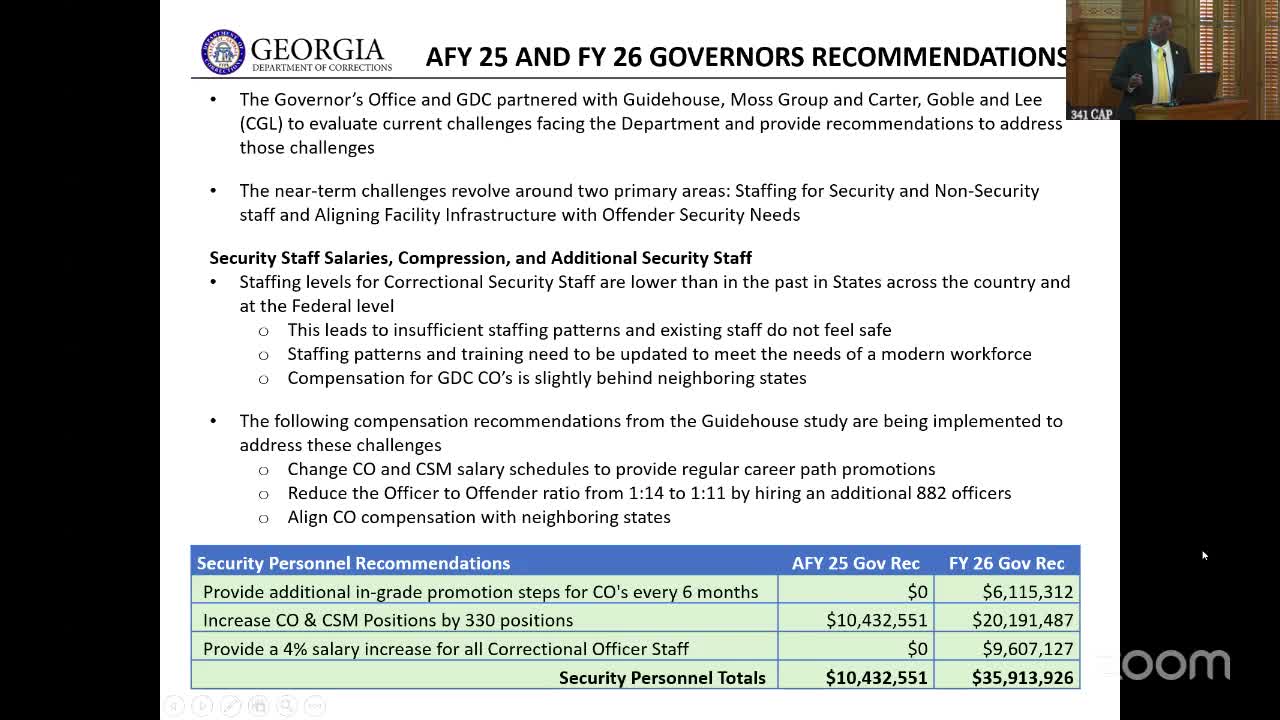Article not found
This article is no longer available. But don't worry—we've gathered other articles that discuss the same topic.
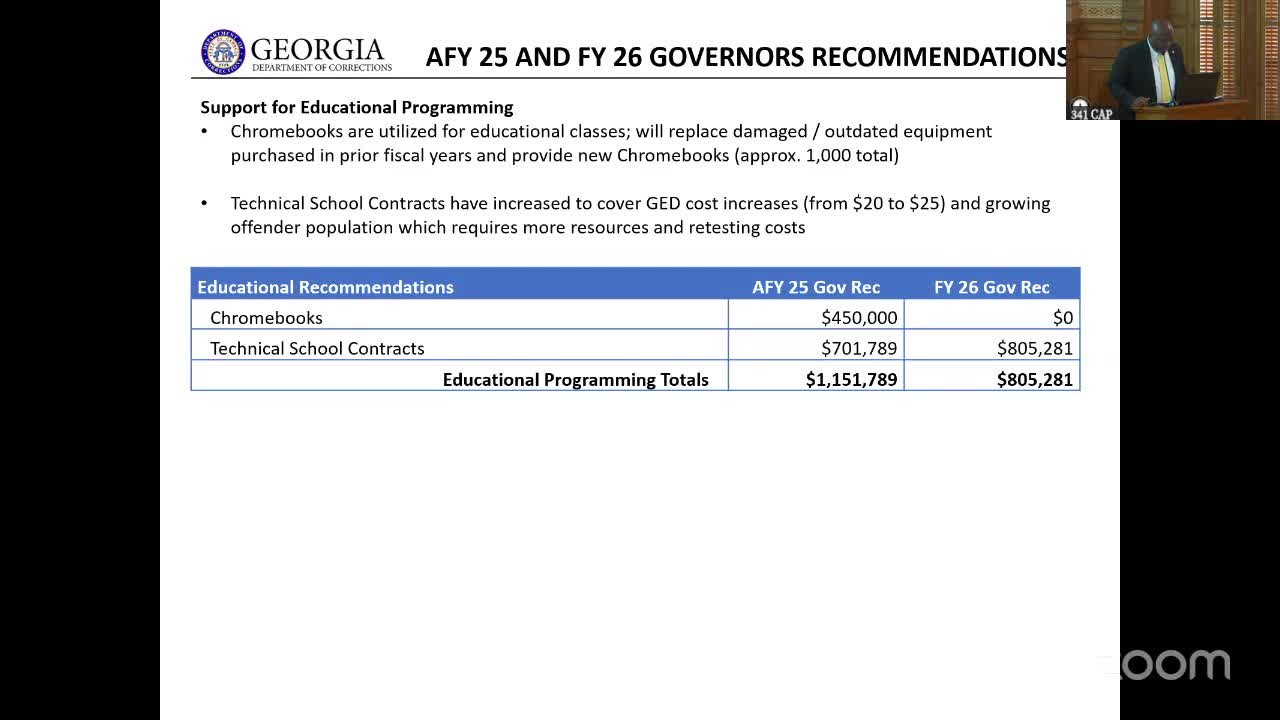
Budget would replace classroom Chromebooks and expand GED testing in Georgia prisons
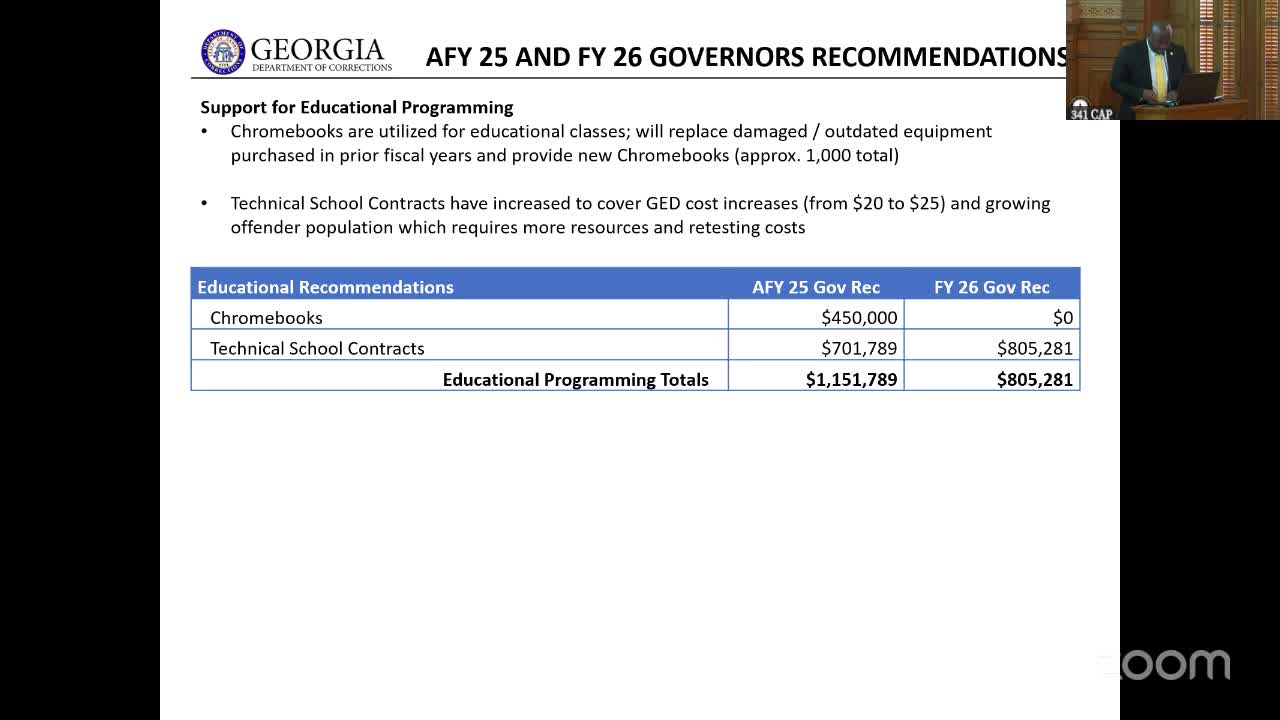
Corrections health care and plan for in‑house long‑term acute care cited as major driver of budget growth
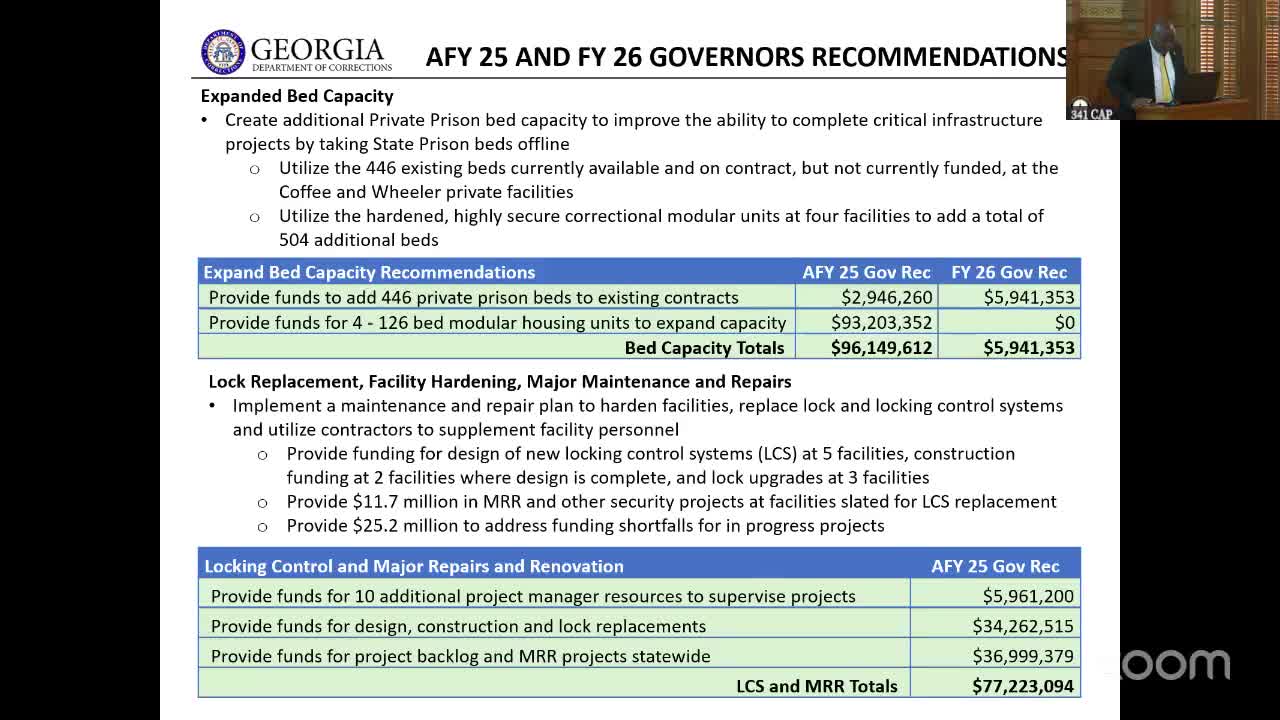
Budget request backs modular housing, lock replacements and major repairs to harden aging Georgia prisons
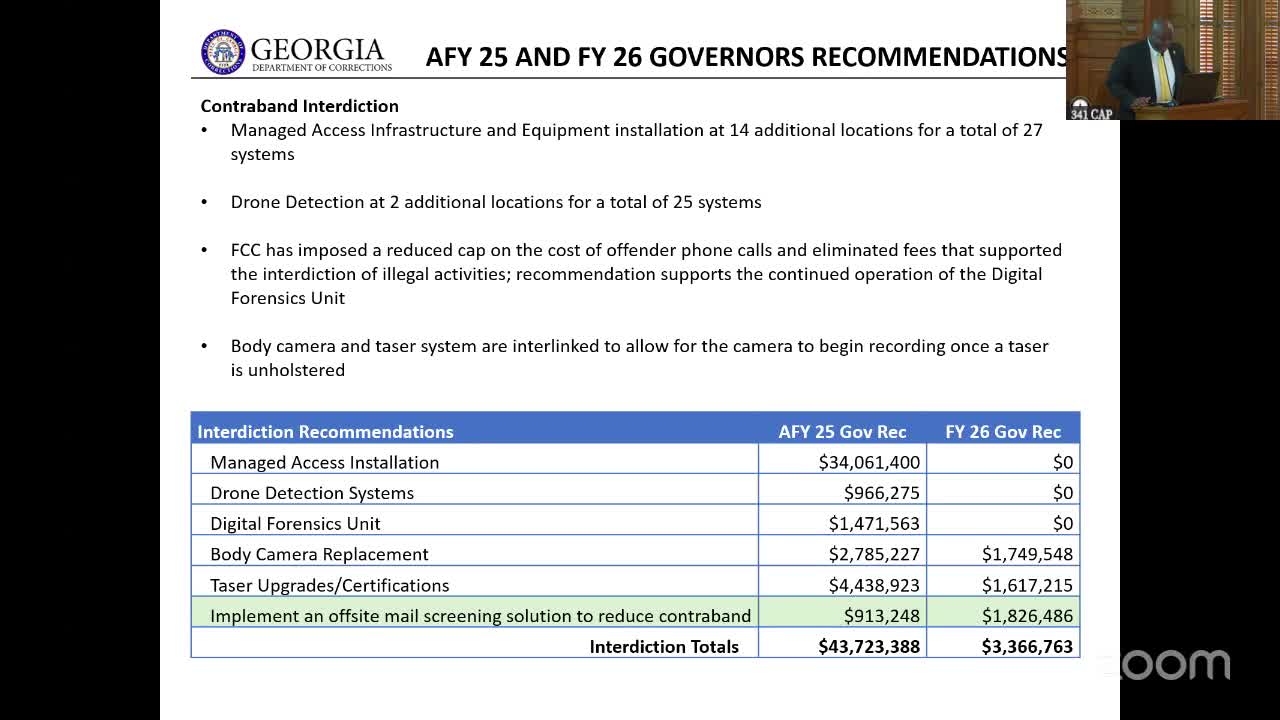
Budget includes expanded cell‑phone interdiction, drone detection and digital forensics to stem contraband in Georgia prisons
